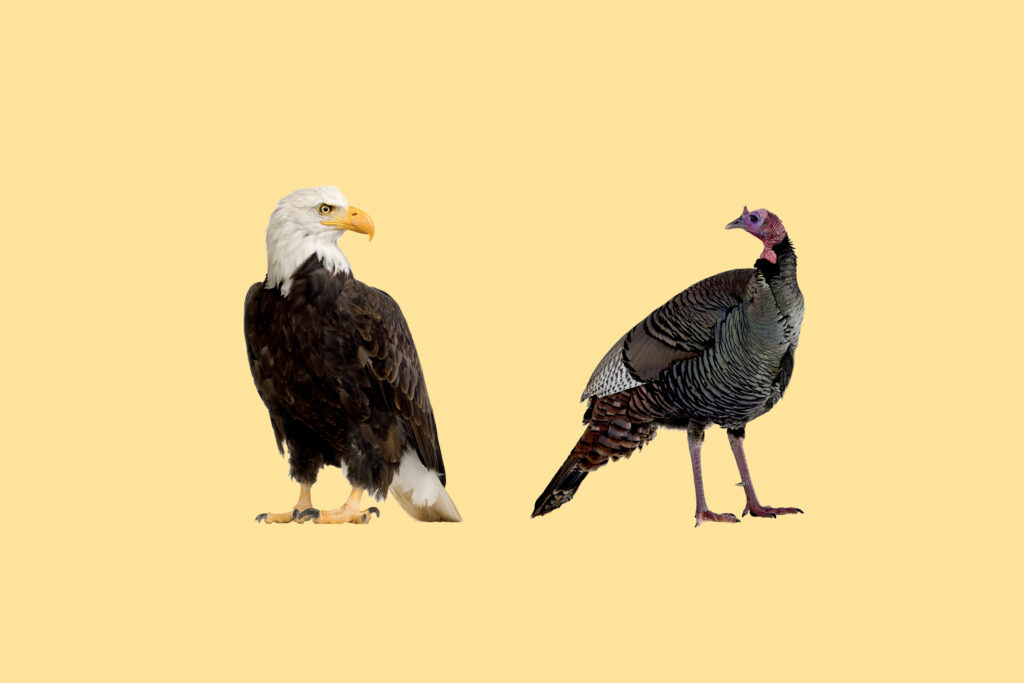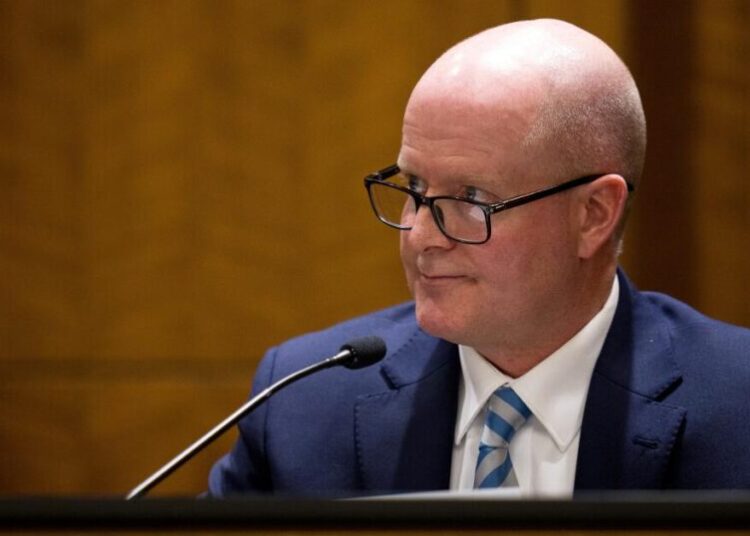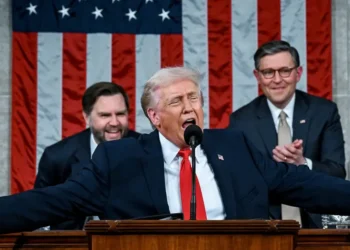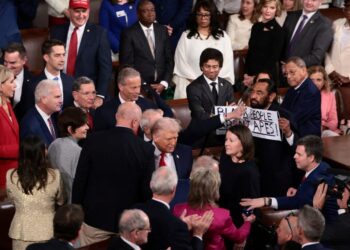It seems appropriate that America, the richest, most powerful nation in human history, has an entire holiday dedicated to giving thanks. Those to whom much is given find it hard to keep track of all their blessings. It’s useful to have an annual reminder of just how much we have to be thankful for.
Normally, at this time of year, I dedicate a column to reflecting on the various innovations that have saved us from the normal human condition — which is to say, a life of frequent discomforts punctuated by even greater miseries. If you are tempted to rhapsodize about some imagined Edenic past, ask yourself whether you really have the fortitude to bury half your children before they finish puberty. I personally do not. I am soft and prone to melancholy. So I will be forever grateful that fortune delivered me to this place and this time, where I can wallow in peace and prosperity.
This year, however, I’ve been reflecting on another thing we ought to be more grateful for: America herself. We have been taking her too much for granted recently, assuming that she will keep showering her gifts upon us without so much as a thank-you note. We’re like trust-funders who slander capitalism and squander their incomes, secure in the knowledge that the checks will keep coming.
They will not, unless we once again start treating America as something we have to earn, rather than something we’re entitled to.
Last week, I had the privilege of hearing a talk by Gordon Wood, the great historian of the American Revolution. He reminded the audience that “the United States is not a nation like other nations, and it never has been.”
“Most of the European states,” he continued, “were created out of a prior sense of a common ethnicity or language … undergirded by peoples who had a preexisting sense of their own distinctiveness, their own nationhood. In the United States, the process was reversed. Americans created a state before they were a nation, and much of American history has been an effort to define the nature of that nationhood.”
America had to invent itself out of whatever parts happened to be lying around: 13 colonies, dozens of ethnicities and language groups, uncounted religious sects. Yet out of this unlikely material, Americans wrought a miracle. They patched together a country that not only held together but kept getting bigger, richer, freer and more essential to humanity.
Hindsight blinds us to how difficult that project was and how many times it almost failed. If George Washington had not been such an able general, the revolution might have been quashed. If the Founding Fathers had been less able statesmen, our fledgling nation might have disintegrated into 13 rival countries. Or it could have fallen apart in the 1860s, when the country ripped itself to shreds over the great flaw in our Constitution: its allowance of slavery in the land of the free and the home of the brave. That flaw could well have proved fatal.
Instead we fixed it, at enormous cost. In the years since, we have repaired many other holes that appeared in the patchwork. The results have not been perfect, and there will undoubtedly be more patching to be done in the future. But it’s lasted longer than it had any right to, and it remains a hell of a birthright.
Such inheritances do not last unless they are tended to. You can’t just assume everything will hold together. You have to be willing to some of the mending.
Unfortunately, that’s gone out of style among the elites who are supposed to be knitting together this improbable nation. Over the past couple decades, the people in charge of our great sense-making institutions — academia, the media, entertainment and the arts — decided that their main job was pointing out where the holes were and demanding that everyone else get busy fixing them. An emerging counter-elite of populist upstarts decided that it was much more fun to rip new holes than to figure out the boring work of governing.
Both groups tended to see their opponents as mortal enemies, rather than fellow Americans. Both spent a lot of time pointing out flaws in American-style free market democracy and little time reflecting on how pleasant, prosperous and free were their lives under that same system. And both groups were implicitly assuming that the work of keeping America in one piece belonged to someone else.
It doesn’t belong to anyone else. It belongs to all of us and each of us. No American can afford to be a lazy trust-funder, living off passive income. We have to be active stewards of our legacy.
Fortunately, that trust still has a lot of capital left, and no damage has been done that cannot be repaired with a little hard work. We should start that work by giving thanks this holiday for the astounding country we’ve inherited. And then we should get busy.
The post How to pay this great American inheritance forward appeared first on Washington Post.




